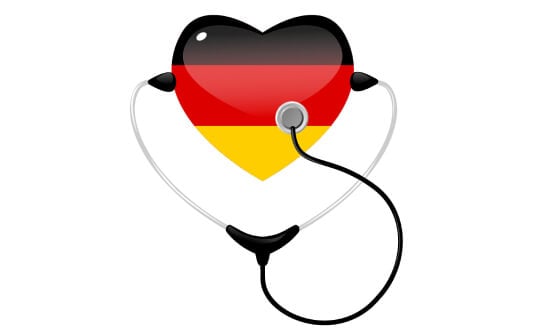Heart transplantation is a surgery during which patient's non-viable heart is replaced with a healthier organ. The transplantation is carried out in the absence of effect from drug treatment or other types of cardiac interventions.
Most often, doctors provide patient with donor heart. Less commonly, an artificial heart is used (this is an implantable mechanical circulatory support system) which assists in blood circulation while a patient is waiting for a donor organ.
Indications for the heart transplantation
The transplantation is necessary in case of a poor prognosis for life due to the severe and irreversible heart diseases. The main indication is a heart failure which develops due to the cardiovascular pathology.
A number of diseases can lead to the insufficiency of myocardial function:
- Infections of the cardiac muscle (viral myocarditis)
- Severe, poorly controlled hypertension
- Severe arrhythmias
- Myocardial infarction
- Cardiomyopathy
- Congenital or acquired heart defects
- Toxic lesions of the myocardium due to alcoholism and drug addiction
The patient must meet a number of clinical criteria in order to make a claim for a donor heart. The following are among them:
- Stage IV heart failure (some clinics perform a surgical intervention in patients with stage III heart failure)
- Predicted life expectancy is less than 6 months
- Age under 60 years (some clinics take patients under the age of 65)
- Satisfactory somatic and mental condition (apart from cardiac pathology)
- Good condition of the pulmonary and coronary vessels
How is the surgery carried out?
Each person has only one heart, so its transplantation is possible only from a recently deceased donor who has agreed to donate his organs.
All surgeries are divided into two types:
- Heterotopic transplantation. This is the rarely practiced intervention. In order to support functioning of the new organ, patient's own heart is left along with the donor one.
- Orthotopic transplantation. It is carried out in most cases. Patient's heart is removed and donor heart is transplanted in its place.
During the surgery, a patient is connected to the heart-lung machine which replaces heart’s function and completely controls blood flow through the vessels. After the removal of patient's own heart, a donor organ is placed in his chest. A doctor carefully stitches the aorta, coronary and pulmonary vessels in order to avoid hemorrhages.
The blood is redirected from the heart-lung machine back to the heart. Then the heart is “started” with the electric current in order to make all myocardial fibers contract rhythmically. In the early postoperative period, it may be necessary to implant a temporary pacemaker in order to normalize the heart rate.
Contraindications
In certain cases, the heart transplantation may not be performed. Absolute contraindications for the transplantation are:
- Severe hepatic or kidney failure
- Critical pulmonary dysfunction
- Severe atherosclerosis of any localization
- High pressure in the pulmonary vessels
- Short life expectancy not related to the state of the cardiac muscle
There are also some situations in which an operation is not advisable. Relative contraindications are:
- Patient is over 65 years old
- Stroke in the medical history
- Alcoholism and drug addiction
- Insulin-dependent diabetes mellitus and its late complications
- Obesity
Heart and lung transplantation
Most patients undergo isolated heart transplantation. But in rare cases, simultaneous heart-lung transplantation is possible.
This is a more complex surgery which requires compliance with certain conditions, such as:
- Availability of a suitable donor with good internal organs
- High-tech equipment
- A team of experienced in such surgeries doctors
The main indications for the heart-lung complex transplantation are:
- Patients with simultaneous heart and lungs lesion (for example, in the case of left-sided heart failure)
- Pulmonary hypertension
- Cystic fibrosis
This transplantation is usually carried out in patients who are under 55 years old and do not have other life-threatening diseases. Such patients are able to undergo a postoperative rehabilitation and take immunosuppressive drugs for a long time in the future.
Heart and lung transplantation operations improve patient’s quality of life and life expectancy. In leading German hospitals, the risks of such surgeries are comparable to the risks of isolated heart transplantations. One-year survival rate after surgical intervention is about 85%.
How long do people live after a heart transplantation?
Heart transplantations are annually carried out in thousands of patients worldwide. This is a frequent surgery in transplantology. Only kidneys and liver are transplanted more often.
In developed countries, the average life expectancy after donor heart transplantation reaches 15 years. The statistics vary in different countries. The approximate survival rate in developing countries is:
- One-year – 80%
- Five-year – 64%
- Ten-year – 45%
The survival statistics is significantly better in economically developed countries (male patients are on the first place and female ones are on the second place):
- One-year – 88% and 86%
- Two-year – 79% and 77%
- Five-year – 73% and 69%
As you can see, the survival rate in men is higher than in women. It is also known that the five-year survival rate in men is 15% higher if the heart was transplanted from a male donor.
The world record belongs to Tony Huesman who lived with a donor heart for more than 30 years. Finally, he died from skin cancer. But modern patients will surely beat this record because nowadays operations are carried out with the help of new methods. More effective drugs have been developed to prevent graft rejection.
Thanks to the improvement of medical technology in recent years and the careful selection of candidates for transplantation, most operations are carried out successfully. Also, an intraoperative and early postoperative mortality depends on the hospital where the operation is performed. Usually it does not exceed 5-10%.
The main problems after the heart transplantation are connected with the graft rejection. Therefore, after the surgery, a patient receives immunosuppressants (drugs that inhibit activity of the immune system) for the rest of his life. Due to the immunosuppressive drugs, the donor heart survives and functions properly in recipient's body.
Where is it better to transplant a donor heart and how much does it cost?
Heart transplantation is a very complicated surgery. For its implementation, the hospital should be well equipped, and the team of doctors should have extensive experience in such surgical interventions.
Choice of the hospital where treatment will be carried out has certain difficulties, because you need to keep in mind the following issues:
- Find a medical institution where the operation will be performed qualitatively, with a minimal risk of death and without any postoperative complications.
- Find a medical institution where the doctors will agree to accept a foreign patient for the surgery (careful selection of patients is carried out because the number of organs which are available for transplantation is extremely limited).
- Find a medical institution where the surgery will be carried out as soon as possible. In case of heart diseases, a long wait for transplantation can cost a life.
The leading German hospitals which annually demonstrate high success rates in heart transplantation and heart-lung complex are:
- University Hospital Erlangen, Department of Cardiac Surgery. According to the Focus magazine, this department also ranks among the TOP cardiac surgery departments in Germany. Heart replacement with a donor organ and implantation of mechanical circulatory support systems are performed here.
- University Hospital Aachen, Department of Thoracic and Cardiovascular Surgery. Doctors of the department under the guidance of Prof. Dr. med. Ruediger Autschbach specialize in the treatment of terminal heart failure. Doctors use modern pharmacological support for myocardial functioning, and, if necessary, successfully transplant a donor heart.
- University Hospital of Wuerzburg, Department of Thoracic and Cardiovascular Surgery. Specialists of the department give preference to the complex treatment of cardiac pathology and, if necessary, carry out a full range of surgical interventions on the heart. The doctors are trained for the treatment of patients from high-risk groups and provide emergency help in the decompensated heart failure.
- Jena University Hospital, Department of Cardiothoracic Surgery. The department's doctors under the guidance of Prof. Dr. med. Torsten Doenst are known for their successful combined organ transplantation surgeries. Heart transplantation, combined with the transplantation of lungs, kidneys, and liver is also being performed here.
Cost of heart transplantation in Germany is determined individually for each patient. The price of heart transplantation depends on the volume of preliminary examination of a patient and a donor, the hospital level, and the type of drug treatment in the postoperative period. On average, a complete treatment including a follow-up costs 40-50 thousand euro.
How to undergo heart transplantation in Germany?
German hospitals admit foreign patients for surgical treatment, including the organ transplantation. A prerequisite for booking a surgery is a correct preparation of medical and administrative documents, receiving visa, getting official invitation from the hospital, and a number of other nuances.
Most patients and their relatives do not have any experience in organization of treatment abroad. They make mistakes and cannot productively communicate with administration of the hospital. Therefore, it is better to contact German medical institutions not independently, but with the help of international health tourism operator Booking Health. Booking Health offers help in such important aspects:
- Choosing the right clinic based on the annual qualification profile
- Establishing communication directly with your doctor
- Preparing medical program in advance, without repeating previous examinations
- Providing favorable costs, without overpricing and additional coefficients for foreign patients (saving up to 50%)
- Booking the appointment on the necessary date
- Monitoring medical program at all stages
- Help in buying and forwarding of medicines
- Communication with the clinic after treatment completion
- Control of invoices and return of unspent funds
- Organization of additional examinations
- Offering service of the highest level: booking hotels and plane tickets, transfer organization
In order to use the assistance of Booking Health, please, leave a request on the website. Our medical consultant will contact you within 24 hours and you will start preparing for the trip.
Choose treatment abroad and you will for sure get the best results!
Authors:
This article was edited by medical experts, board-certified doctors Dr. Nadezhda Ivanisova, and Dr. Bohdan Mykhalniuk. For the treatment of the conditions referred to in the article, you must consult a doctor; the information in the article is not intended for self-medication!
Our editorial policy, which details our commitment to accuracy and transparency, is available here. Click this link to review our policies.
Sources:
Read:
Cardiac surgery in Germany: coronary artery bypass grafting (CABG)
Article menu:
Don't know where to start?
Contact Booking Health







